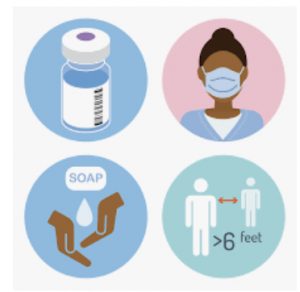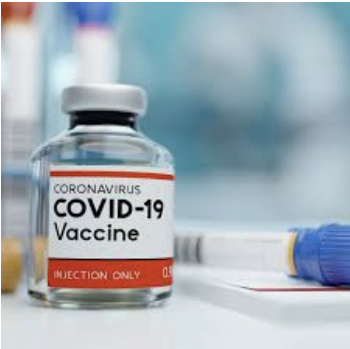With the increased distribution of vaccines in the Bay Area, there is increasing optimism regarding COVID-19’s demise. With the Bay Area having around 400,000 cases altogether, the state has seen numbers improve within the last few weeks.
The three vaccines authorized in the US are from the pharmaceutical companies Moderna, Pfizer and Johnson and Johnson. Currently, vaccines are being distributed to those at higher risk, such as senior citizens, individuals aged 16-64 with severe health conditions, and healthcare workers. Last week the state also set aside 10% of vaccines for teachers in order to get schools open.
Arthur Ting, an orthopedic surgeon located in Fremont encouraged others to get the vaccine as he believes it will improve our current state of the pandemic. Ting is educated on the vaccine and its purposes.
“It will definitely decrease the spread of the virus,” Ting said.
Most vaccines are being given out at hospitals, pharmacies, or community vaccination sites.
Local Kaiser Permanente hospitals are administering vaccines to those who are eligible and follow the criteria.
Ting says, “I would definitely encourage everyone to get the vaccine.”

The Covid vaccination is currently the most important tool to stop the spread of this virus. The Center for Disease Control claims that “All COVID-19 vaccines currently available in the United States have been shown to be highly effective at preventing COVID-19.”
The vaccine allows the body to recognize and fight the virus, though it may take a few weeks for the body to build up to full immunity. The societal consensus for a wide vaccine distribution push has reached an all-time high, as people are eager to return to their fully functioning lives.
“I can’t wait for the general public to be offered the vaccine, including students, so we can hopefully get back to whatever the new normal will look like,” said Kristin Coronado, Sequoia Union High School District’s health aide.
The vaccination does come with symptoms. Most people report that there is some soreness in their arm. The Pfizer/bioNtech vaccine numbers show that there is a 47% chance a person will feel fatigue and a 42% chance of a headache.
Coronado, who received the vaccine, said she didn’t feel any pain at all.
A preponderance of the hesitation surrounding the virus stems from a lack of information regarding long-term effects.The district’s other health aide, Nannette Pasion, understood that people’s opinions on the vaccine are a touchy subject.
“I was hesitant at first given the fact that it was developed rather quickly. Having some protection now against Covid versus what the long-term effects would be, if any, outweighed my hesitation,” explained Pasion.
theconversation.com explains why the vaccine was developed so quickly. They elucidated that the production started before the end of phase 3 trials. There were also many people eager to volunteer for the vaccine trial. Usually it takes scientists months to find this kind of interest.
With the uncertainty that the past 12 months has brought us, it is imperative that we demonstrate faith in scientists, health care professionals, and front line workers.
According to the New York Times, President Biden claims that “there would be enough doses of the coronavirus vaccine available for the entire adult population in the United States by the end of May.”






